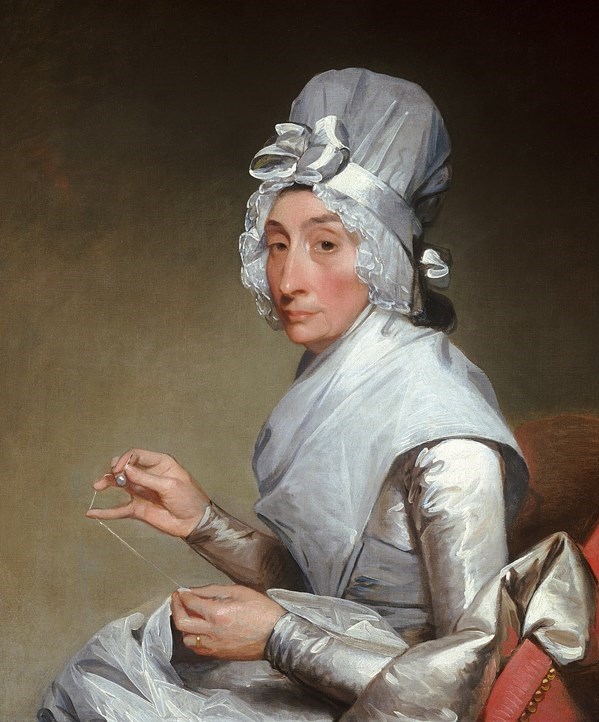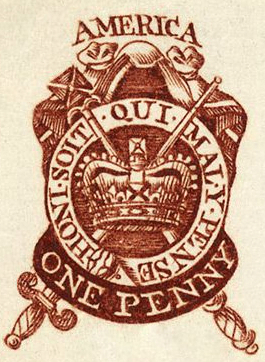Here’s Part II of the “Stamp Act in New York, 1765”, which is covered on the walking tour “Washington and Hamilton in New York City,” along with other stories of women in the American Revolution:
Just a few months later, on December 6, 1765, in resistance to the Stamp Act which included a tax on wedding certificates, the New-York Gazette published an announcement: “We hear that the young Ladies of this Place are determined to Join Hands with none but such as will to the utmost endeavor to abolish the Custom of marrying with License.”[i] Other ladies protested by rejecting the beloved cloth and fashionable “rich brocade” manufactured in England, dusting off their old spinning wheels, and committing to a tedium of spinning their own cloth. The attachment to fine English cloth was so dyed in the wool, so to speak, that some women lamented wearing unfashionable homespun; but newly patriotic women implored all women to show pride in “clothes of your own make and spinning”.[ii] It was a tough sell to some New Yorkers. In the New-York Gazette, in “A Letter from a young Lady in Town to her Friend in the Country,” the writer expressed the great indignity of wearing homespun: “Must we in nothing be distinguished from meer country dowdies? Must the refinements of a thousand years give way to the ignorance that prevailed” at a time when “ladies were so grossly ignorant of the charms of dress, and so entirely void of taste?”[iii] Over time, as patriotism surged, homespun became “a badge of honor and a visible political statement” for women who supported the great cause of liberty.[iv] Parliament, confronted by the nonimportation pact that was bolstered by women, repealed the Stamp Act in 1766. When news of this victory reached New York City, women and men celebrated here at the Commons as the Sons of Liberty raised the first Liberty Pole—a Roman symbol of public defiance to oppression.[v] Nevertheless, it was a short-lived victory. More taxes were imposed on the colonists from the Townshend Acts in 1767 to the Tea Act in 1773. As Britain asserted its authority and demands for revenue, resistance increased, and women continued to exercise their agency as housewives, consumers, and shopkeepers by making purchasing decisions based on what was good for the colonies.
[i] Linda De Pauw, Four Traditions: Women of New York During the American Revolution, (Albany: New York State Bicentennial Commission, 1974), 14.
[ii] Berkin, Revolutionary Mothers, 16.
[iii] Belinda. “A Letter from a young Lady in Town to her Friend in the Country.” New York Gazette or the Weekly Post-Boy, October 30, 1765.
[iv] Berkin, Revolutionary Mothers, 17.
[v] Burrows and Wallace, Gotham, 203.











